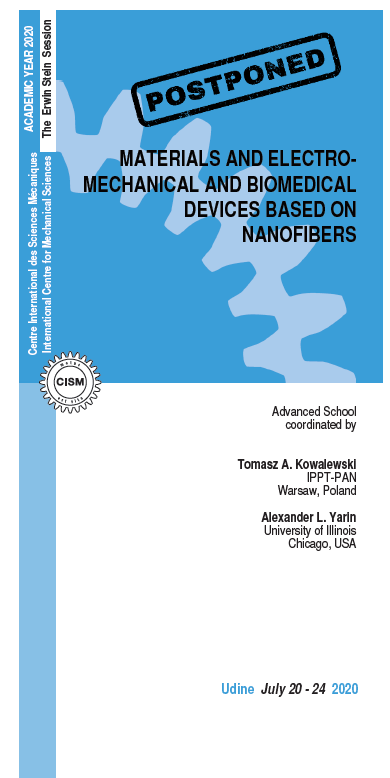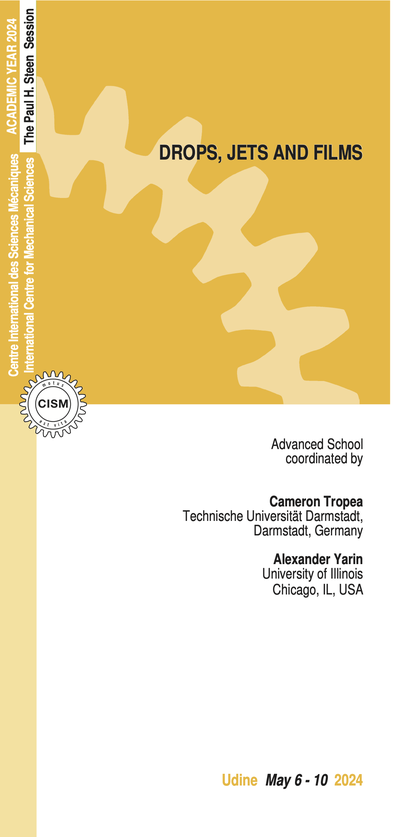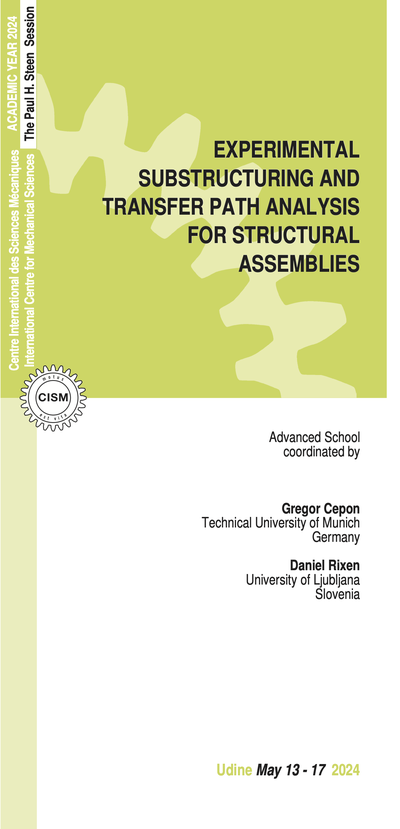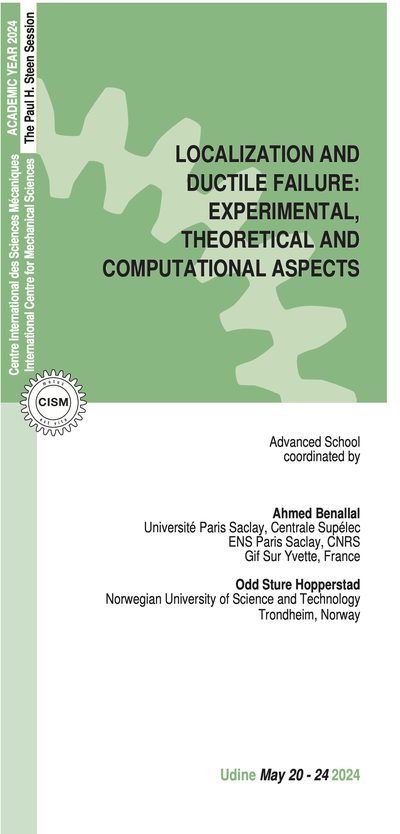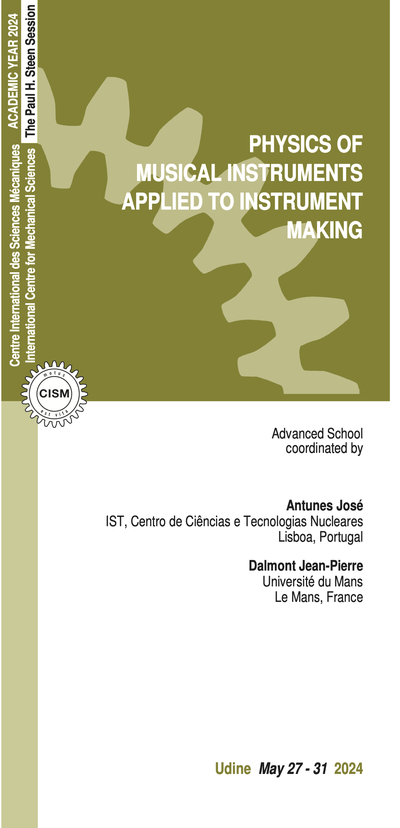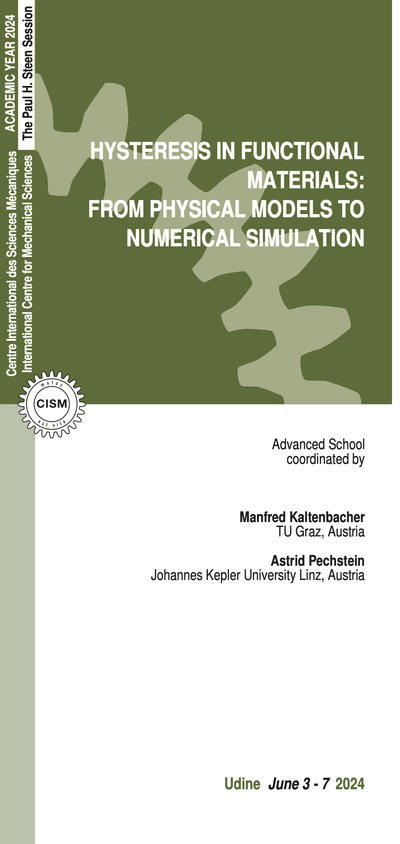A.L. Yarin et al. Fundamentals and Applications of Micro- and Nanofibers. Cambridge University Press, 2014.
A. L. Yarin et al. Self-Healing Nanotextured Vascular Engineering Materials. Springer Nature, Switzerland AG, 2019.
S. An et al. Blister-like soft nano-textured thermo-pneumatic actuator as an artificial muscle. Nanoscale 10, 16591 (2018).
M.-W. Kim et al. Packing of metalized polymer nanofibers for aneurysm embolization. Nanoscale 10, 6589 (2018).
M. Boas et al. Electrospinning polyelectrolyte complexes: pH responsive fibers. Soft Matter 11, 1739 (2015).
L. Daelemans et al. Damage-resistant composites using electrospun nanofibers: a multiscale analysis of the toughening mechanisms. ACS Applied Materials & Interfaces 8, 11806 (2016).
D. Pisignano, Polymer Nanofibers, Royal Society of Chemistry (RSC), Cambridge 2013.
M. Gaio et al. A nanophotonic laser on a graph. Nature Communications, 10, 226 (2019).
F. Di Benedetto et al. Patterning of light emitting conjugated polymer nanofibers. Nature Nanotechnology, 3, 614 (2008).
F. Pierini et al. Polymer-based nanomaterials for photothermal therapy: From light-responsive to multifunctional nanoplatforms for synergistically combined technologies. Biomacromolecules, 19, 4147 (2018).
S. Pawłowska et al. Fibrous polymer nanomaterials for biomedical applications and their transport by fluids: an overview. Soft Matter, 14, 8421 (2018).
P. Nakielski and F. Pierini. Blood interactions with nano- and microfibers: recent advances, challenges and applications in nano- and microfibrous hemostatic agents, Acta Biomaterialia, 84, 63 (2019).
L. Daelemans et al. Excellent nanofiber adhesion for hybrid polymer materials with high toughness based on matrix interdiffusion chemical conversion. Advanced Functional Materials, 29(8). (2019).
4 lectures on: Thermo-mechanical analysis of electrospun fibers, fibrous assemblies and nanocomposite films enhanced with nanofibers, composites enhanced with electrospun fibers: failure mechanisms and micromechanical mechanisms of nanofibers, composites enhanced with electrospun fibers: from delamination lab-testing to realistic composites.
with Filippo Pierini
8 lectures on: Hydrogels: mechanical properties, transport properties of particles, droplets, filaments, hydrogels for drug delivery and tissue recovery, electrically conductive network polymer nanomaterials, stimuli-responsive nanomaterials for biomedical application, nanofibrous hemostatic agents: blood-nanofiber interactions.
6 lectures on: Electrospinning of polymer solution, electrical and rheological properties of charged polymer jets, formation of the precursor of electrospun jets, driven bending instability, modeling the electrospinning process: numerical approaches, alignment of electrospun nanofibers.
Filippo Pierini will hold his lectures along with professor Tomasz A. Kowalewski
6 lectures on: Organic light-emitting materials, organic and plastic devices: sensing, biosensing, microfluidics; wetting of nanofibrous materials, photonics based on polymer NFs, piezoelectric NFs: interplay with light-emitting materials, NFs for biomedicine and cell cultures.
6 lectures on: Self-healing vascular nano-textured materials, biopolymer nanofibers and their applications, soft robots and actuators based on nanofibers, sustainable biopolymer nanofiber-based triboelectric nanogenerators, metallized nanofibers, nanofiber-based heaters and sensors.
6 lectures on: Polyelectrolytes-based nanofibers, polyelectrolytes complex nanofibers, actuation based on polyelectrolytes complex nanofibers, drug release based on polyelectrolytes complex nanofibers.
The registration fee is 600.00 Euro + VAT*, where applicable (bank charges are not included). The registration fee includes a complimentary bag, four fixed menu buffet lunches (on Friday upon request), hot beverages, downloadable lecture notes and wi-fi internet access.
Applicants must apply at least one month before the beginning of the course. Application forms should be sent on-line through the following web site: http://www.cism.it. A message of confirmation will be sent to accepted participants. Applicants requiring assistance with the registration should contact the secretariat at the following email address cism@cism.it.
Applicants may cancel their course registration and receive a full refund by notifying CISM Secretariat in writing (by email to cism@cism.it) no later than two weeks prior to the start of the course.
Cancellation requests received during the two weeks prior to the start of the course will be charged a 50.00 Euro handling fee. Incorrect payments are also subject to a 50.00 Euro handling fee.
A limited number of participants from universities and research centres who are not supported by their own institutions can be offered lodging and/or board, if available, in a reasonably priced hotel or student guest house.
Requests should be sent to CISM Secretariat by May 20, 2020 along with the applicant's curriculum and a letter of recommendation by the head of the department or a supervisor confirming that the institute cannot provide funding. Preference will be given to applicants from countries that sponsor CISM.
Information about travel and accommodation is available on the web site www.cism.it, or can be mailed upon request.
* Italian VAT is 22%.
